In this interview, we sit down with Those Things Silver, a one-woman musical project blending emotion, reflection, and raw honesty. She talks about her vocal influences, the meaning behind her name, songwriting born from dreams and personal experiences, and the stories behind tracks like Stardust and Cold. She also opens up about independence in music, challenges as a female artist, and what she hopes listeners take away from her songs.
Transcript
Q: You’ve mentioned being drawn to strong female voices in rock. Which artists influenced your vocal style the most?
A: I’ve always loved bands like Concrete Blonde and 4 Non Blondes. I’m drawn to those deep, resonant, tough female voices in rock — not the light, pretty kind. Shirley Manson from Garbage has an incredible tone, and there was this early band called Dyed Cheerleader — their vocalist, Sam Ireland, had this powerful, emotional voice that really stuck with me. I’ve always connected with that kind of energy. I naturally have a lower voice too, so when I was twelve, singing along with those artists, I knew that’s where I belonged — that was my register.
Q: What does the name Those Things Silver mean to you? How does it reflect your artistic vision?
A: Silver has always been symbolic to me. It’s reflective — it mirrors the soul — and spiritually, it resonates with feminine energy and the moon. Silver represents purity in religious rituals, yet it can also tarnish. That duality fascinates me. I used to have a website called thosethings.com, and when I combined that idea with “silver,” it just felt right. Those Things Silver has layers of meaning — reflection, purity, imperfection — all of which tie into who I am and what I create.
Q: When writing new music, do you usually start with lyrics, melody, or vocal improvisation?
A: It really depends. A lot of times, songs come to me in dreams — I’ll literally wake up and rush to record the melody or lyrics on my phone before I forget. Some of my released songs came entirely from dreams. Other times, it’s inspired by life — something a friend says, or just an image that sparks a poem or story in my head. I’ve got notebooks scattered all over my house filled with lyrics and half-finished ideas. I try to stay organized, but honestly, there are piles everywhere!
Q: How much of your songwriting comes from personal experience versus more abstract storytelling?
A: Most of it is personal, even if it’s subconscious. Writing is therapy for me. When I’m angry or sad, I write it down — usually in the form of a story or poem — and it becomes part of a song later. It’s how I process everything.
Q: Your song “Stardust” feels both fragile and powerful. What was the emotional journey behind it?
A: Stardust came from a three-year relationship I had when I was around twenty-five. It was an abusive relationship that left a deep mark on me. Writing the song helped me release that pain and learn from it — it was my way of turning something traumatic into something meaningful. It’s a reminder of what to avoid, but also proof that I survived it.
Q: Do you prefer working alone or collaborating with others on your music?
A: Emotionally, I find it easier to work alone because I have a very specific vision. But it’s also exhausting — one song can take years if I handle everything myself. Collaboration speeds things up, but it takes more emotional work to align with someone else’s passion and comfort zone. Usually, I’ll create a rough version of a song, hand it off, and tell the other person to make it beautiful in their own way. Then I come back and add lyrics. It’s a balance.
Q: How do you prepare your voice before recording?
A: Honestly? I don’t do much — just drink water and maybe stretch a little. I’ve got a home studio in my basement, and when inspiration hits, I just run down and start recording. It’s not the healthiest habit, and I don’t recommend it! I really should warm up more. Do as I say, not as I do.
Q: Are you planning to release a full album, or do you prefer releasing singles for now?
A: For now, singles feel more natural. I’m still exploring who I am musically — I love so many genres, and if I made an album right now, it wouldn’t sound cohesive. I’m waiting for that moment of clarity — when the universe tells me, this is your tone, this is your sound. Then I’ll be ready for an album.
Q: Which of your songs feel the most personal to you?
A: Stardust and Cold, for sure. They’re both based on personal experiences — Stardust deals with domestic abuse, and Cold with health struggles. Those songs are deeply personal, but I wanted them out there so people who’ve gone through similar things can feel understood. Cold especially is about strength — about surviving when life feels unbearable. They’ll always be my babies.
Q: How do you want listeners to feel when they hear your music for the first time?
A: I want them to feel connected. Even if the music sounds upbeat, I hope they really listen to the lyrics. If just one person feels less alone because of something I wrote, then I’ve done something worthwhile — though, of course, I’d love it to be more than one.
Q: What’s been the biggest challenge for you as an independent artist?
A: Getting people to actually listen. Once they do, they usually like it, but without financial backing or a label, it’s hard to reach people. I don’t really want to make flashy videos or dance around on social media — it’s not who I am. Sadly, that’s what gets attention today. I just want to be recognized for the music, not the image. Financially, it’s tough too — promoting music properly can cost hundreds of thousands of dollars. If I win the lottery, I’ll make it happen!
Q: Do you see yourself experimenting with new genres or vocal styles in the future?
A: Definitely. I love trying new things. I’ve tried rapping — can’t do it! The timing is so hard. I can manage spoken word, maybe. Country isn’t really my thing either, though I respect artists like Johnny Cash and Dolly Parton. But I’m open to experimenting and finding new sides of my voice. Why limit myself?
Q: If you could collaborate vocally with any artist, past or present, who would it be?
A: Ian Astbury from The Cult. He’s been the voice in my head since I was about ten. His voice is completely unique — no one sounds like him. You can recognize it instantly. That kind of individuality is what I admire most. It would be a dream to work with him. So, Ian — if you’re listening — let’s manifest it!
Q: What do you hope people will discover about Those Things Silver in the next few years?
A: Honestly, I just hope they discover me. I’m not chasing fame — I just want people to hear my music and connect with it. The world can feel so isolating, and if what I do helps even a few people feel less alone, that’s enough. Of course, if money comes with that, I won’t say no. [laughs]
Q: What advice would you give to young female musicians starting out?
A: Don’t do it for fame or ego. Do it because you love it. Be humble, be honest, and connect with people. Music should have emotion — people can always tell when it doesn’t. At the end of the day, being able to look in the mirror and feel like you did something meaningful matters more than any amount of likes or views. Just stay true to yourself, and remember — nobody’s better than anyone else.
🇪🇸🇦🇷Visual artist specialised in artistic makeup, tattooing, and micropigmentation. Her work, shaped by a gothic and symbolic sensibility, unites ritual and beauty in exploring the body as a medium for profound expression.
As a writer She contribues to music, and She’s currently working on her first novel.

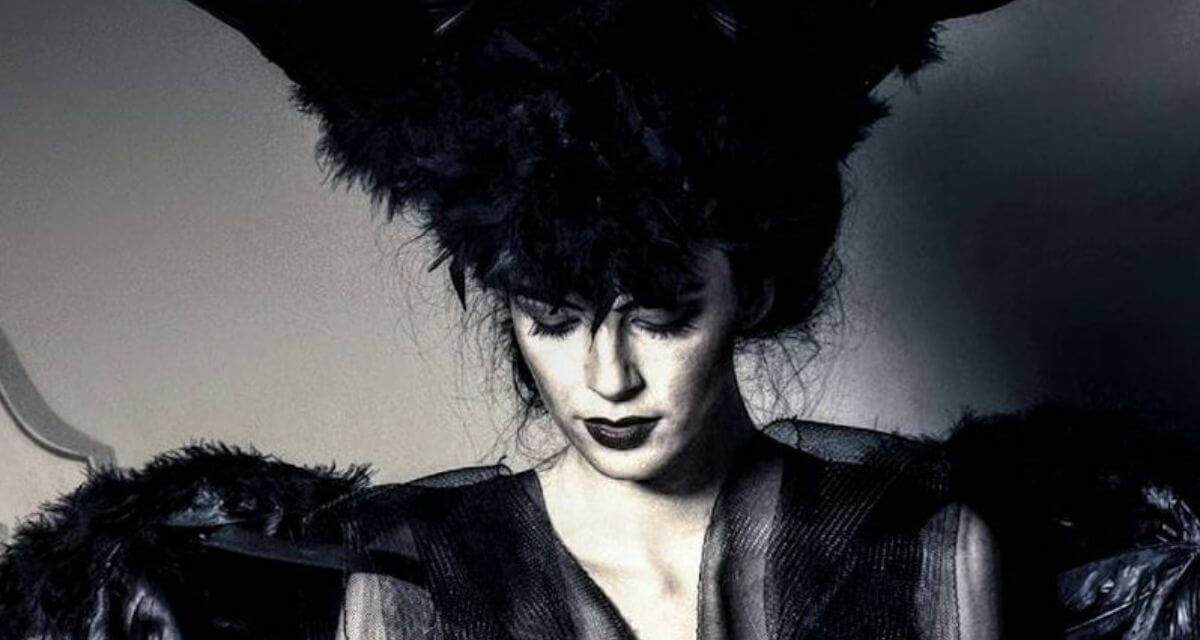



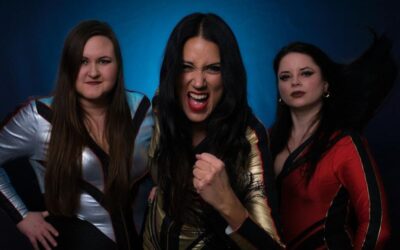
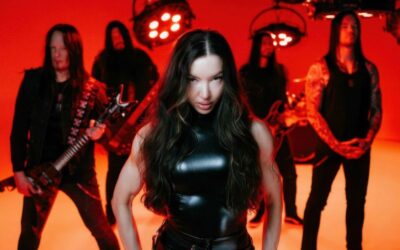
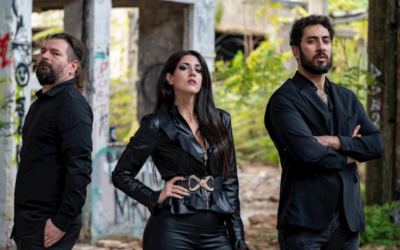


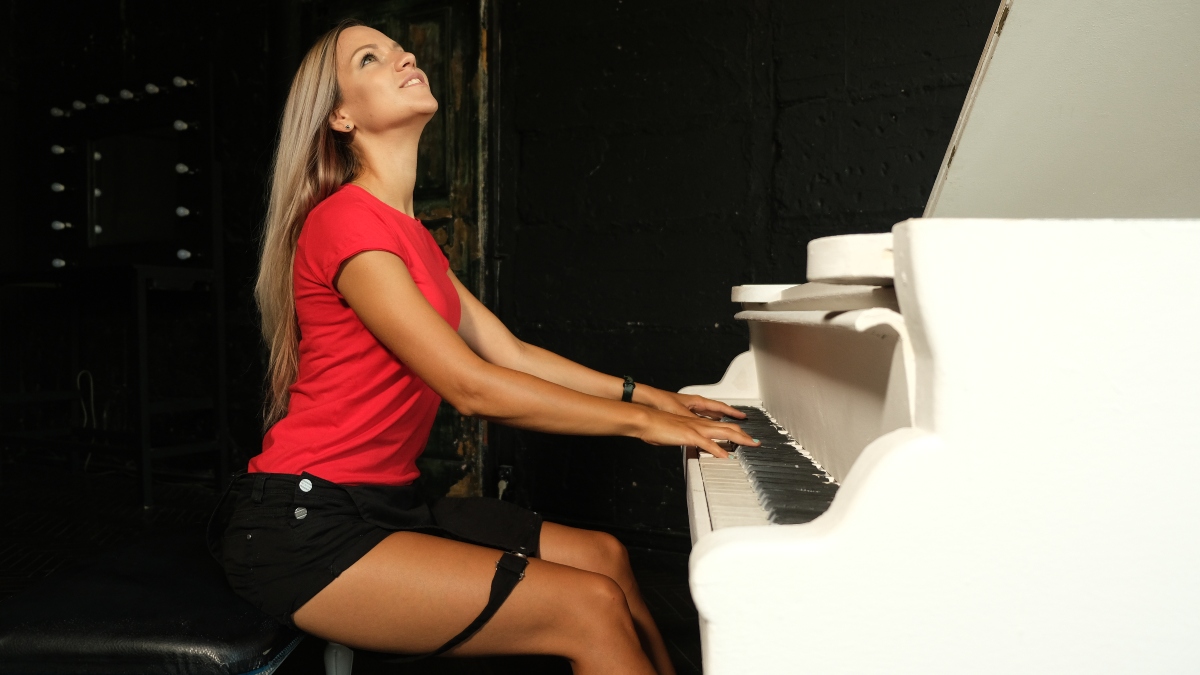
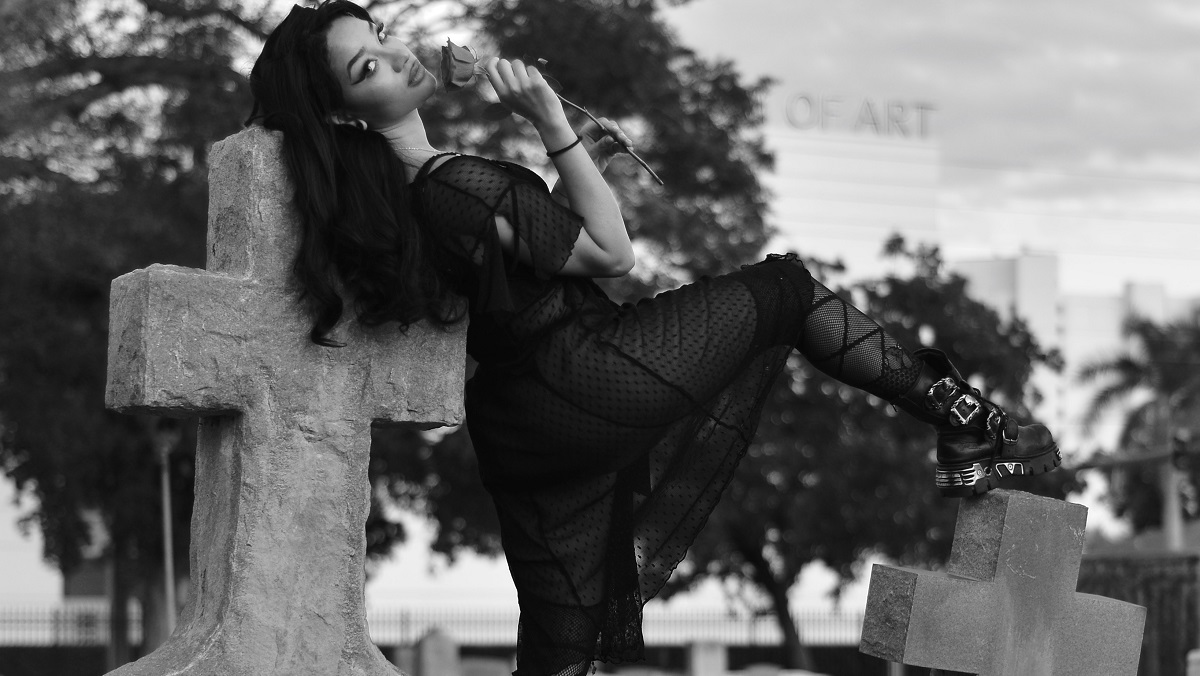


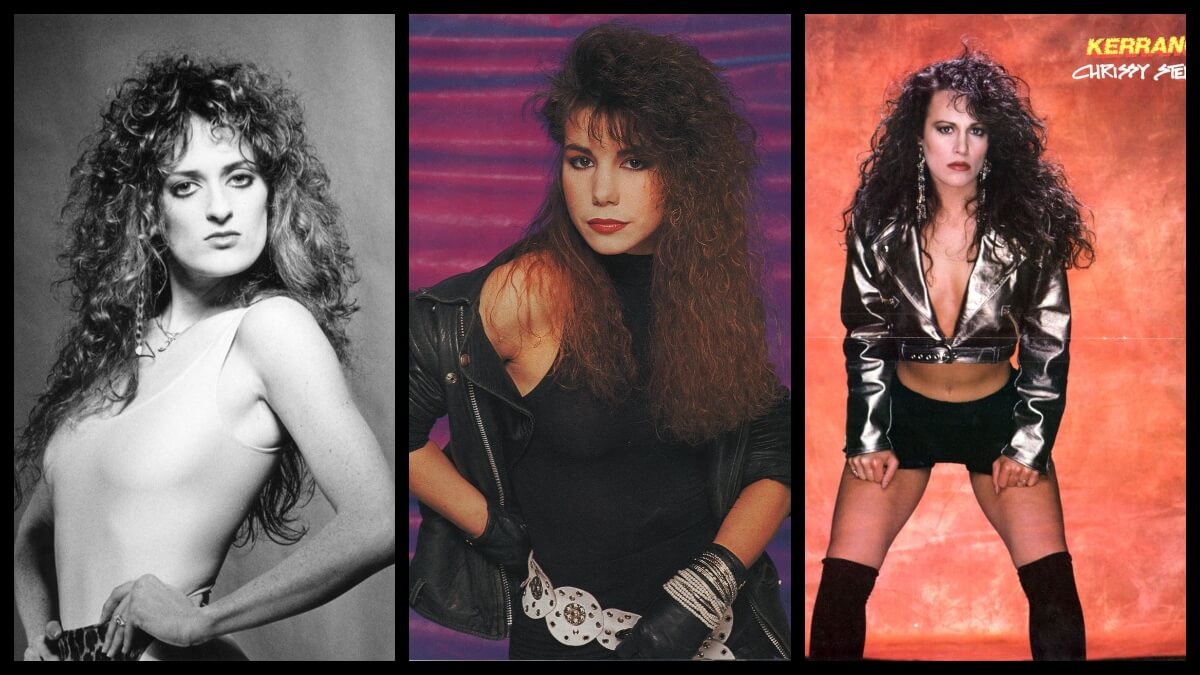

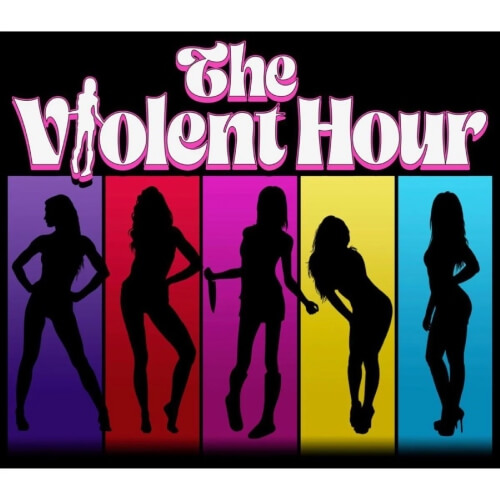
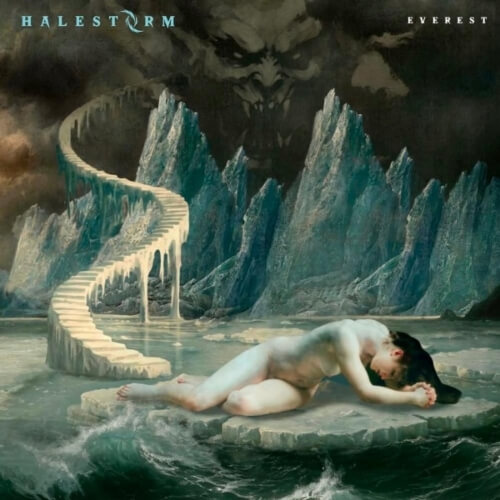
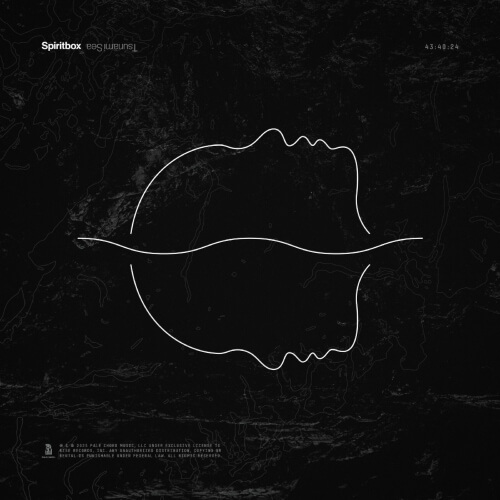
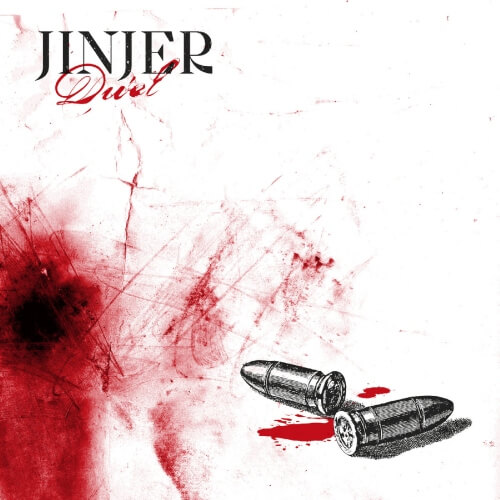
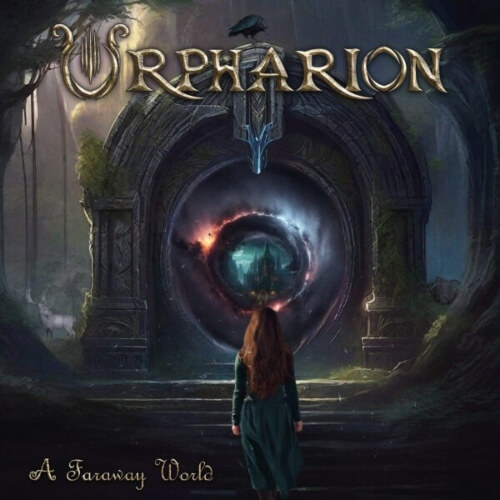
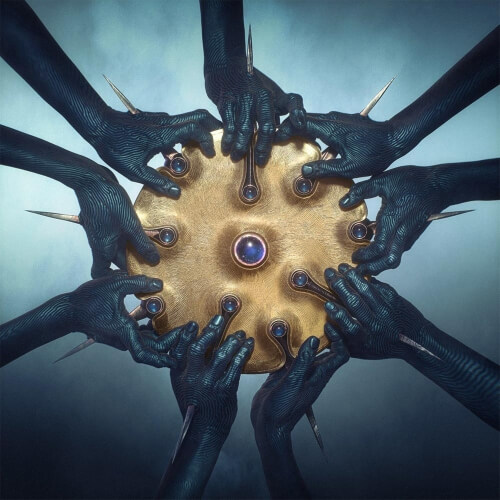
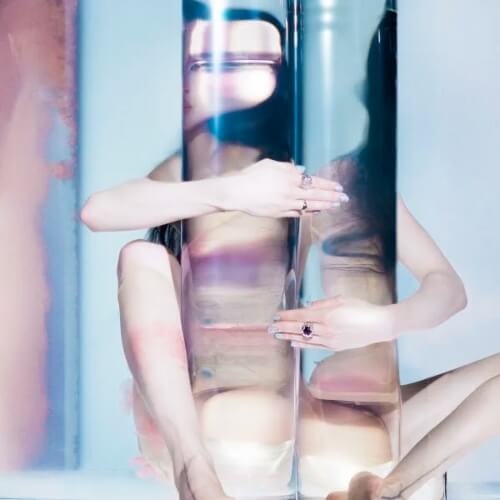
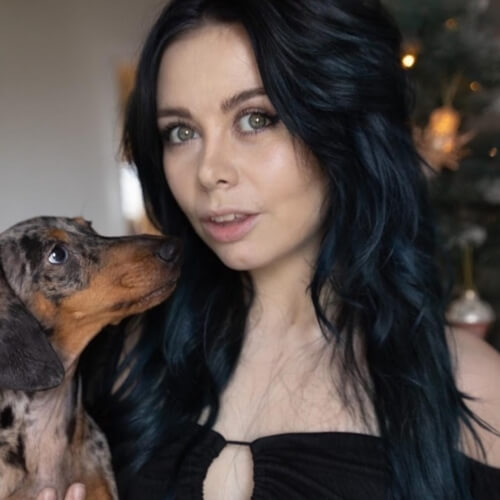
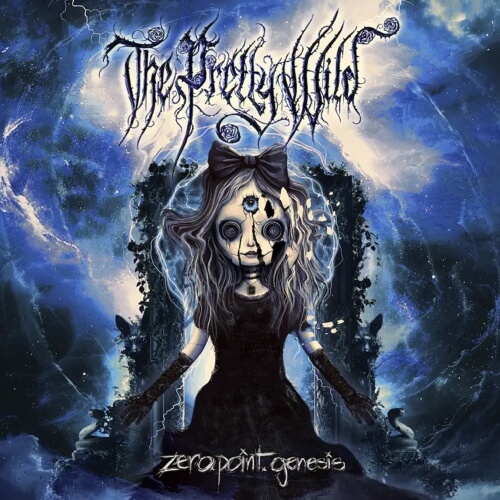

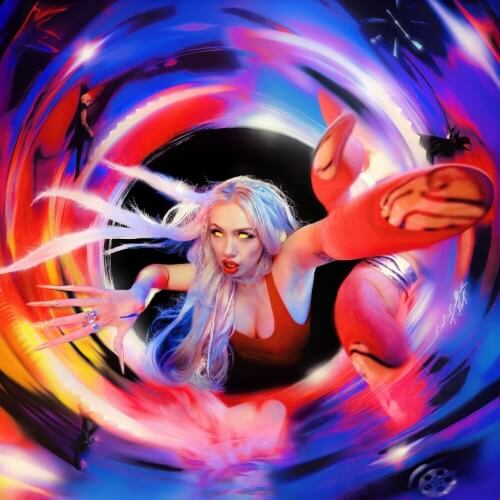
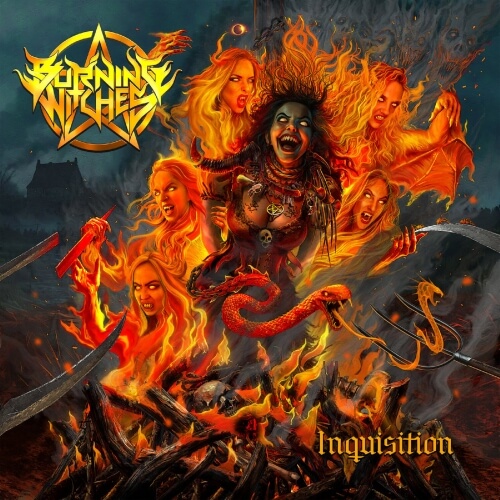
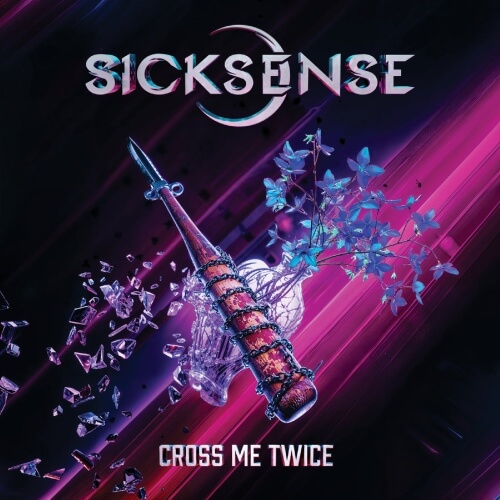
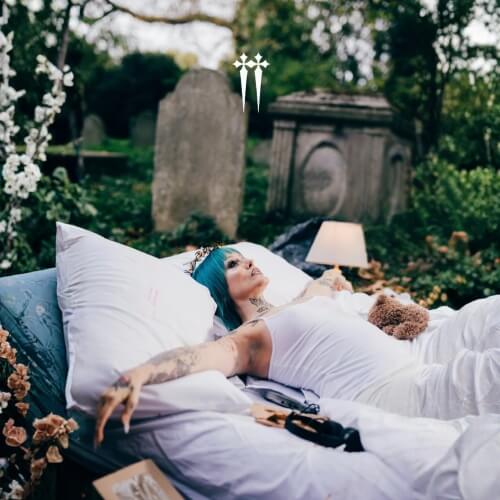
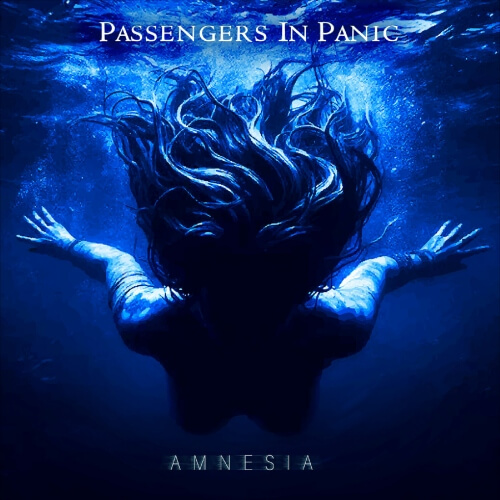
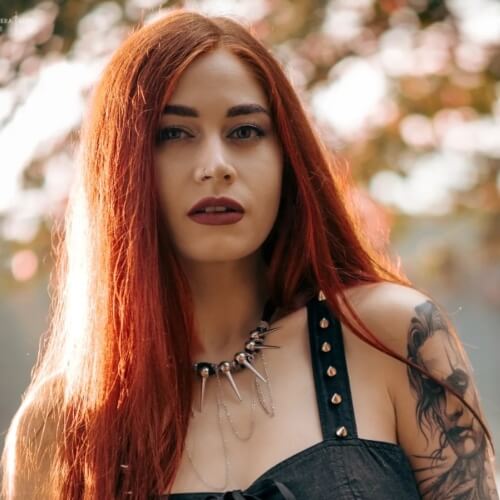
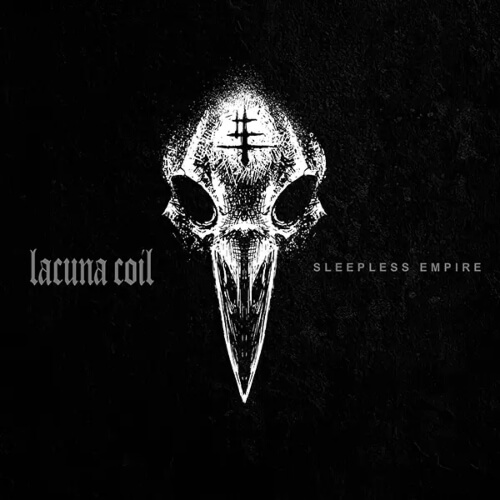
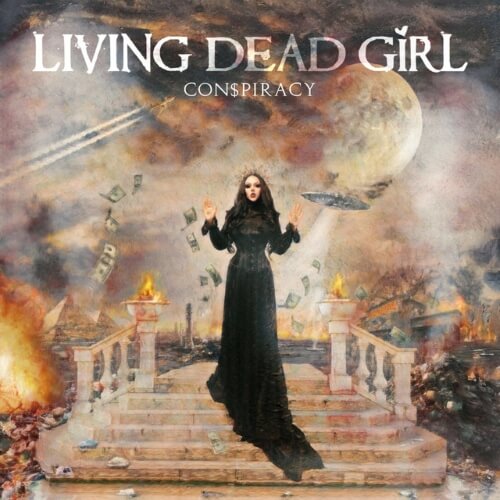
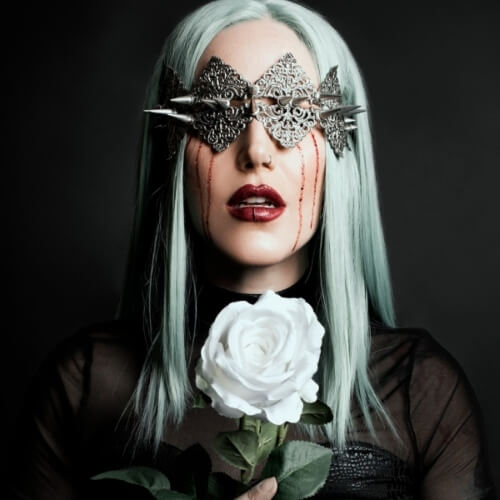
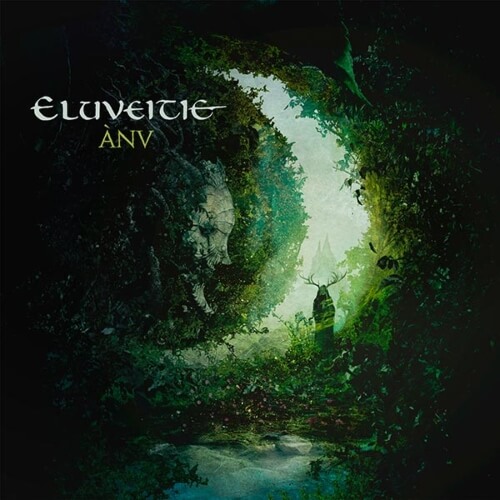
0 Comments